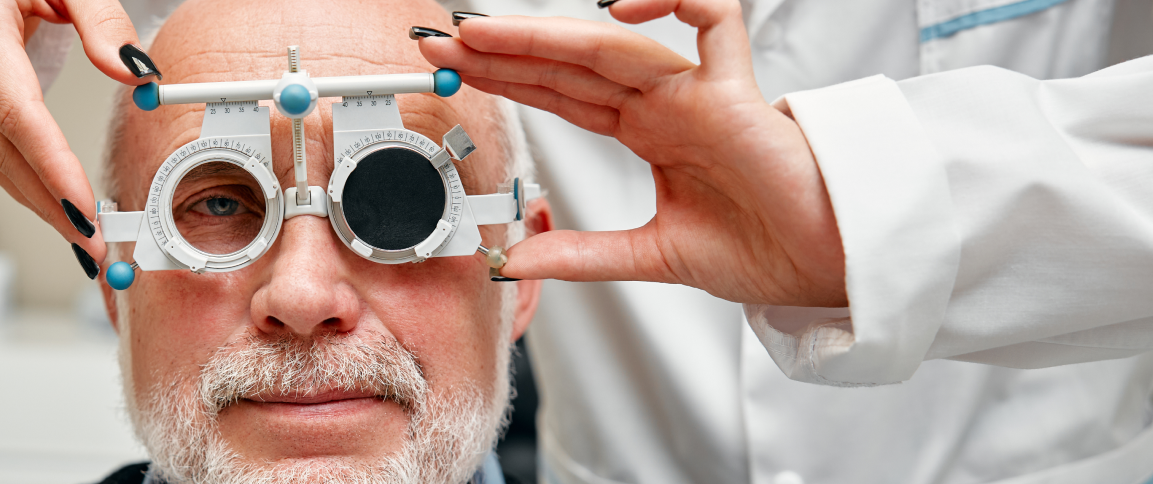
Vision changes are a natural part of aging, but many age-related eye conditions can lead to permanent vision loss if not detected early.
It’s recommended that adults over the age of 60 have a comprehensive eye exam every year. Regular eye exams are essential for early detection of conditions like glaucoma, cataracts, and macular degeneration, which can progress without noticeable symptoms. If you have diabetes, hypertension, or a family history of eye disease, more frequent exams may be necessary.
A senior eye exam at Victoria Village Optometry includes several tests to assess your vision and the overall health of your eyes:
These tests allow us to monitor changes in your vision and detect early signs of age-related eye conditions.

As you age, you’re more likely to develop certain eye conditions. During a senior eye exam, we closely monitor for the following:
Early detection of these conditions during a senior eye exam allows us to provide effective treatments and manage your eye health.

At Victoria Village Optometry, we are committed to helping seniors maintain their eye health and enjoy clear vision. Regular senior eye exams are essential for detecting age-related eye conditions early and preventing vision loss. Schedule your senior eye exam today to protect your vision and overall well-being.
1315 Lawrence Avenue East, Unit 513, Toronto, ON, M3A 3R3, Canada